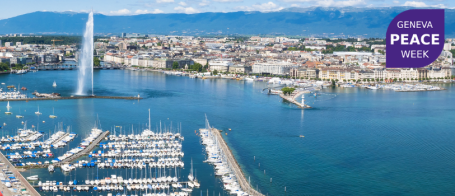Geneva Peace Week

adelphi, Search for Common Ground and UNEP presented the session Creating a climate for collaboration: Ways forward for environment, climate change, and peace:
The goal of this session was to improve collaboration and technical knowledge-sharing between climate scientists, conservationists, peacebuilding practitioners and other relevant development actors. adelphi and its organizing partners, Search for Common Ground and the United Nations Environment Programme, achieved this goal by: 1) Elevating novel approaches to integrated climate and security risk analysis and lessons learned from their applications in fragile contexts. 2) Identifying key challenges for implementing conflict-sensitive conservation or natural resource management programs and recommendations for designing more effective learning tools for practitioners.
In many fragile and conflict-affected regions, climate change and environmental degradation are reversing progress towards sustainable development and presenting growing risks to human security. Given the multidimensional nature of these risks, an integrated approach to peacebuilding and environmental protection is needed. However, there are still major gaps in practice: Climate science, resource management and peacebuilding are distinct technical disciplines that often work in a siloed manner. Peacebuilders often lack necessary data and tools to identify and address environmental risks. At the same time, limited resources are available to guide conservation and climate adaptation interventions in conflict-affected areas and to make sure that they account for local needs and capacities. In both fields there are also still significant weaknesses with respect to integrating gender-sensitivity. Thereby, specific vulnerabilities of women and men but also the inherent potential of inclusive approaches at times are not sufficiently taken into consideration.
This session was an opportunity for peace and conservation practitioners to learn about new integrated tools that support programme design, monitoring and evaluation in environmental peacebuilding, and discuss their strengths, practical limitations, and opportunities for complementarity. The interactive session also gave room to discuss how peacebuilders can better account for climate and environmental risks and how conservationists can make their interventions more conflict-sensitive.
For more information: Online Workshops Agenda GPW21 (eventscloud.com)
Share on

